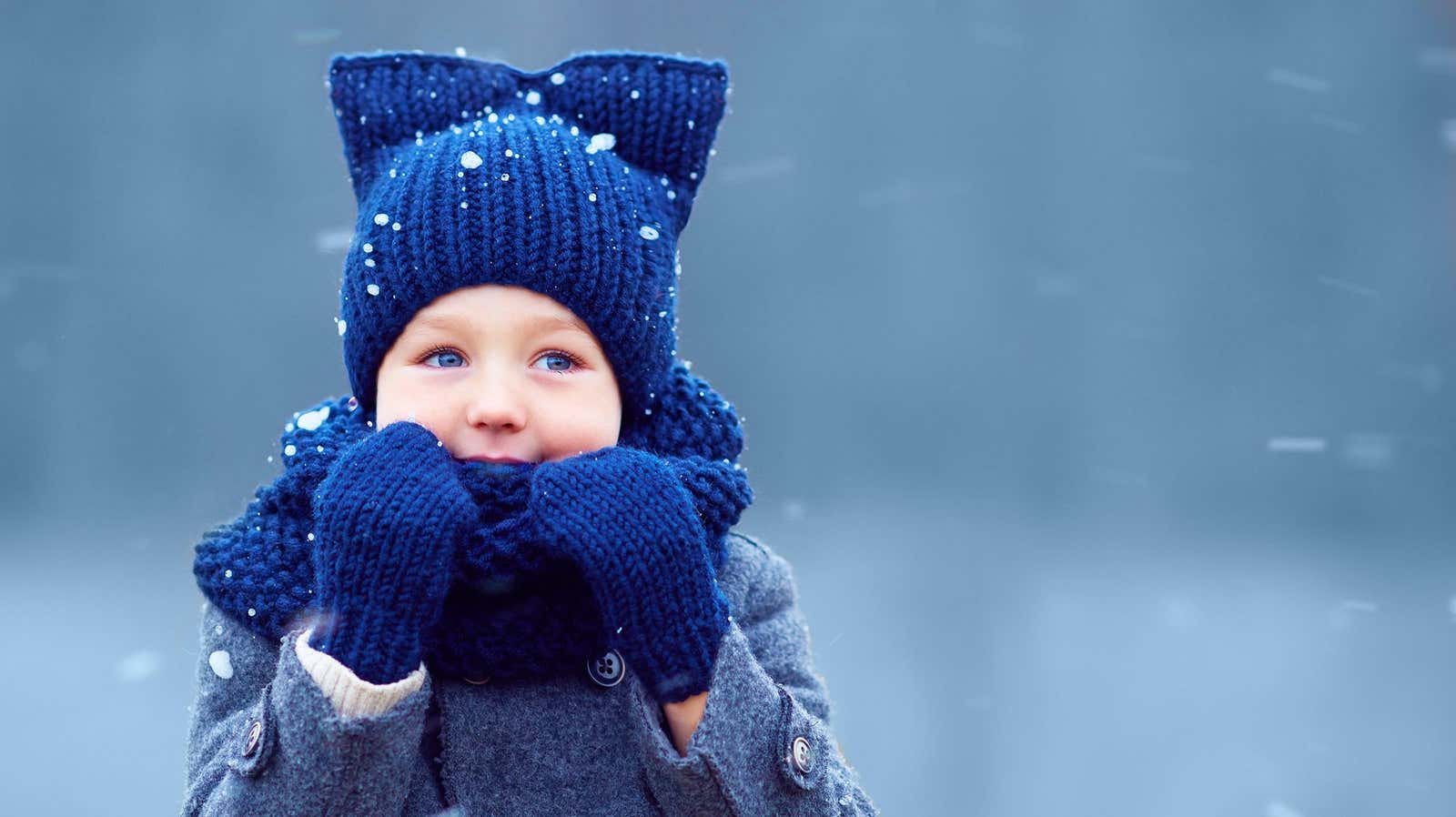No, Mom, You Won’t Get Sick in Cold Weather.

Children never seem to want to dress appropriately for any occasion – at least not mine. They want to wear pajamas to school, Halloween costumes to bed, and summer clothes when it snows. So we say what we need to say to get them to wear their hats, right? “You will catch your death from the cold!”
But is it really possible to catch a cold from the cold? Colds are caused by viruses, so no. But could cold weather make you more susceptible to these viruses? Well, it’s a little more complicated. But probably still not.
Colds are caused by viruses
The common cold is an infectious disease caused by microbes, particularly viruses. So no, cold weather alone cannot cause a cold. However, there is more than one virus that can cause a cold. “Cold” is just a word we use to describe a group of symptoms that come with common respiratory viruses: sore throat, runny nose, cough, sneezing. According to the CDC , some of the viruses that cause the common cold include:
- rhinoviruses
- adenoviruses
- respiratory syncytial virus (RSV)
- coronaviruses (not counting COVID and SARS, although they are also coronaviruses)
- human parainfluenza viruses
- human metapneumoviruses
Since the common cold is spread from person to person, to avoid infection, the CDC recommends washing your hands, avoiding touching your face with unwashed hands, and avoiding close contact with people who are sick. Wearing a hat when going outside is not included in the list of preventive measures.
Why are colds more common in winter?
The idea that a cold can cause a cold may have come from the observation that colds are more common in winter. But a lot of things are different in winter than in summer, which affects the spread of respiratory viruses.
First, we tend to stay at home when it’s cold outside, and this brings us into closer contact with others. In this way, cold viruses spread more easily, just like COVID.
Another factor is that cold air contains less moisture than warm air. This means that the mucous membranes inside our noses can dry out more easily, whether we’re outside in cold weather or indoors in dry, warm air. (This warm air is often just cold, dry air outside, warmed up.) These membranes are part of our defense against viruses, so dry air can make us more susceptible to colds.
There are other hypotheses why respiratory viruses, including colds and flu, are more common in winter. First, we get less sunlight and therefore less vitamin D. Second, viruses can survive longer outside the body when the weather is cold. Some proponents of the “cold makes you catch a cold” myth like to point out that a cold can stress your body, and any stress can potentially affect your immune system. While this is true, it is unlikely that it will greatly affect whether you get a cold or not.
What about William Henry Harrison?
It probably all makes sense, but what about William Henry Harrison, our ninth president, who only served for a month? As the history books tell us, he wanted to attract attention with his health and vigor, so he delivered a long inaugural speech while standing in a cold hat without an overcoat or overcoat. As a result, he caught a cold, developed into pneumonia, and he died. So how is this possible?
First, be suspicious of this story because of how neat and convenient it seems. The man died because of the consequences of his own pride. Great story. But did he really catch a cold, and really because of the hatless speech? According to a data revision published in the 2014 journal Clinical Infectious Diseases , the answer to both questions is likely no.
Harrison definitely didn’t catch a cold after his performance. He began to feel bad only after three weeks. His symptoms for the first few days were headache, abdominal pain and constipation, and fever. The cough appeared later, a few days before death. So why does everyone think he died of pneumonia? His doctor was puzzled by the president’s set of symptoms, the authors of the 2014 analysis wrote, but had to give an answer that the public could understand:
In response to intense pressure from a stunned public to explain the loss of their newly elected leader, he gave them pneumonia as an answer, albeit with obvious reservations. “The disease was not treated as a case of pure pneumonia [he wrote]; but since it was the most palpable lesion, the term “pneumonia” provided a concise and intelligible answer to countless questions about the nature of the attack.
But the authors note that the president’s gastrointestinal symptoms were more severe than his respiratory ones, and that he probably died of “abdominal fever” or, more simply, a really serious stomach pathogen (perhaps typhoid fever).
Washington D.C. did not have a sewer system at the time, and the White House’s water supply was suspiciously close to one of the city’s human waste dumps. The authors note that Presidents James Polk and Zachary Taylor also had episodes of severe gastrointestinal illness while living in the White House at the time (Taylor also died from the condition). But, of course, let’s blame Harrison for not wearing a hat in the cold.